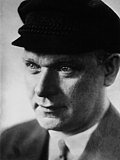| | First party | Second party | Third party |
|---|
| |  |  |  | | Leader | Otto Stolten | Carl Wilhelm Petersen | Franz Heinrich Witthoefft |
|---|
| Party | SPD | DDP | DVP |
|---|
| Last election | 82 seats, 50.5% | 33 seats, 20.5% | 13 seats, 8.6% |
|---|
| Seats won | 67 | 23 | 23 |
|---|
| Seat change |  15 15 |  10 10 |  10 10 |
|---|
| Popular vote | 217,774 | 75,576 | 74,517 |
|---|
| Percentage | 40.6% | 14.1% | 13.9% |
|---|
| Swing |  9.9% 9.9% |  6.4% 6.4% |  5.3% 5.3% |
|---|
| | | Fourth party | Fifth party | Sixth party |
|---|
| |  |  |  | | Leader | Karl Anton Gutknecht | Ernst Thälmann | Johannes Hirsch |
|---|
| Party | DNVP | KPD | Hamburgischer Wirtschaftsbund |
|---|
| Last election | 4 seats, 2.9% | Did not run | 7 seat, 4.2% |
|---|
| Seats won | 18 | 18 | 5 |
|---|
| Seat change |  14 14 |  18 18 |  2 2 |
|---|
| Popular vote | 60,446 | 59,179 | 18,826 |
|---|
| Percentage | 11.3% | 11.0% | 3.5% |
|---|
| Swing |  8.4% 8.4% |  11.0% 11.0% |  0.7 0.7 |
|---|
| | | Seventh party | Eighth party | Ninth party |
|---|
| | Eddelbüttel |  |  | | Leader | Dr. J.F.T. Eddelbüttel | Paul Bergmann | Bernhard Dinkgrefe |
|---|
| Party | Dr. Eddelbüttel | USPD | Centre |
|---|
| Last election | Did not exist | 13 seats, 2.5% | Did not run |
|---|
| Seats won | 3 | 2 | 1 |
|---|
| Seat change |  3 3 |  11 11 |  1 1 |
|---|
| Popular vote | 12,049 | 7,686 | 6,575 |
|---|
| Percentage | 3.5% | 1.4% | 1.2% |
|---|
| Swing |  3.5% 3.5% |  1.1% 1.1% |  1.2% 1.2% |
|---|
|